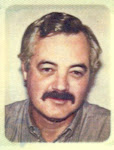The Devil Is Innocent. The WWW Is the Father of All Lies, Including Fake News and Other Fictional History!
There was recently a question on Quora about why the US invented most of the technological achievements of the 20th century. One answer listed a range of key inventions not done by the US, of which one was the invention attributed to the UK, of the WorldWideWeb (WWW) by Lord Tim Berner-Lees.
My ire was raised because my partial involvement with the people whose efforts collectively brought the WWW into operation did not mention Berner-Lees, but instead concentrated on Douglas Engelbart a US computer specialist who postulated groupware, the VDU, the mouse, the light pen, the GUI, hpertext, and the universal resource locator (URL). More importantly, Engelbart lead the teams that actually produced those items individually, but also the Alto desktop computer that embodied them and led to the Macintosh and Windows.
But all I have read of Berner-Lees, he gave only a passing reference to Engelbart, and generally lied through his teeth. He was a great computer scientist, but he was also a typical self-centred human.
While he is also best known for inventing the WWW (and nominated by Time as one of the 20th century greats, it is something he never did, but has never denied the honour.
******
The following is the complete comment to the Quora comment I wrote in July 2023, but could not entirely submit due to its length (a comment I could make here about the Quora moderators I have restrained from inserting). The I entry is (mainly) as follows).
*****
Tim Berners-Lees invented the WWW?
Only in his dreams.
And it was his dream for many years. But he can be most charitably described as a Henry Ford (or a Stanley, perhaps) of distributed computing that became part of the WWW. He was working at CERN as a computer scientist, when he cobbled together a network system (that we would now describe as an intranet or groupware) that used Nelson’s Xanadu concepts of hypertext and hypermedia, but spread over multiple separate computers.
Nelson's hypertext vision was first proposed in 1963 but never released as a workable product, and was conceptually different in operation to the WWW. Berner-Lees’ initial implementation was a different product to the concept that leaked out of the US in the early 1990s as the WWW, but had no obvious affect on the WWW's evolution.I would propose Douglas Engelbart as the “Father of the WWW”, even though many other people contributed components and ideas to its evolution over a half-century. But Engelbart's ideas seemed to be a source of them.
I first heard of hypertext (which many consider one of the original idea behind the WWW) in a 1984/5 article published in Macworld, discussing the ideas of Douglas Engelbart (the person behind the VDU, mouse, the GUI, the Alto - forerunner to the Macintosh, and groupware) and Ted Nelson, a sociologist who supposedly coined the terms, hypertext and hypermedia. While the article referred to both concepts as hypertext, they were different: Engelbart’s was based on using text items spread over multiple distant systems, (with different authors at each system) while Nelson’s was concerned with multi-media components stored on a single mainframe system.
(I much later found out that only Engelbart’s ideas had actually been successfully demonstrated in 1968 and 1972.)
In March 1985, a computer and communications consultant from Melbourne, Tony Smith, with a small group of engineers and computer scientists based in Melbourne and Sydney, contacted Douglas Engelbart in Cupertino and asked permission to port his hypertext product to Unix. Engelbart agreed and and provided a number of papers on the issue as well as agreeing to provide support.
I next contacted Smith in 1989 on another matter, and asked about this hypertext project. He simply sad that the information from Engelbart had been distributed to a number of institutions worldwide.
In early 1995, I was introduced to the WWW and Netscape 1;1, as well as the all-important URL (uniform resource locator) that was then attributed to Engelbart.
I managed to track Netscape Navigator back to the University of Kansas' Lynx, a hypertext browser developed in 1992,. Whether it took anything from the Gopher browser invented the previous year is moot, although this was supposed to browse “Gopherspace” within the University that used it. I assumed this might have been related to the dissemination by Smith and friends.
Interestingly the URL term and format is generally attributed as an invention of Berners-Lee in 1994. Even more interesting is that he disliked the format, but offered no reason for is choice.I think the WWW had hundreds of parents, and no single person could be considered the “father.” But I also consider that the release of Engelbart’s documentation to the university computing facilities worldwide contributed to the current open-source structure of the WWW, in spite of Microsoft’s efforts.
To me, Engelbart is the Father of the WWW, but many spread his seed.

